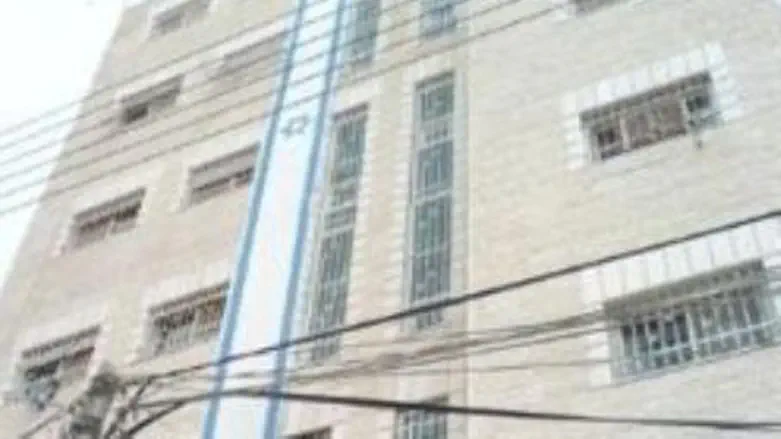
Efforts to have hundreds of illegal Arab homes razed in the Shiloach (Silwan) neighborhood, below the Old City of Jerusalem, are not succeeding – and instead, the legal authorities are demanding that the lone illegal Jewish building, six-story Beit Yehonatan, be demolished or sealed. Jewish land activists working on behalf of the building and its residents are now taking a different approach, and have zeroed in on two illegal Arab structures located near Beit Yehonatan and that have a very similar status.
Attorney Amir Fisher, who is submitting the petition to the Supreme Court on behalf of the Regavim association, says the city authorities have been waging criminal proceedings against the buildings’ owner, Ahmed Sheikh, for years. Sheikh had been permitted to build only two stories in each building, as in the rest of the neighborhood, yet built them six and seven stories high, respectively.
Demolition orders were issued for the buildings as early as ten years ago, and Sheikh’s appeals against them were all rejected – yet the buildings still stand. Four years ago, Sheikh was even sentenced to eight months in prison and fined more than two million shekels; he has so far escaped justice by leaving the country.
Despite the illegality of hundreds of buildings in the neighborhood, the city and judicial authorities, led by Jerusalem Legal Counsel Yossi Havilio and State Prosecutor Moshe Lador, are working to have Beit Yehonatan, specifically, sealed or razed. Just this past Tuesday, a petition by residents against the decision was rejected by the Jerusalem Magistrates Court.
Beit Yehonatan is named for Israeli citizen Jonathan Pollard, imprisoned for life in a U.S. jail.
Quoting Havilio Himself
Havilio has also gone strongly on record in the past against Ahmed Sheikh, and the current petition quotes him extensively: “The construction of these buildings is a most grave violation, blatantly mocking the law and court decisions… It is one of the most serious construction violations that I have encountered since becoming the city’s legal counsel.”
Regarding Beit Yehonatan, Havilio has said: “The State of Israel is a country of law, and as such court decisions must be executed. This simple and basic truth is weakened when such orders are not fulfilled. By accepting this failure, the fundamental rules of the regime and the strength of the democracy are harmed.”
Despite the rejection of all of Sheikh’s appeals, and despite his escape abroad, and despite the city’s stand, the buildings still stand, the Regavim suit declares, and therefore they must immediately be torn down.
Regavim deals with the public and legal aspects of keeping national lands in Jewish hands.